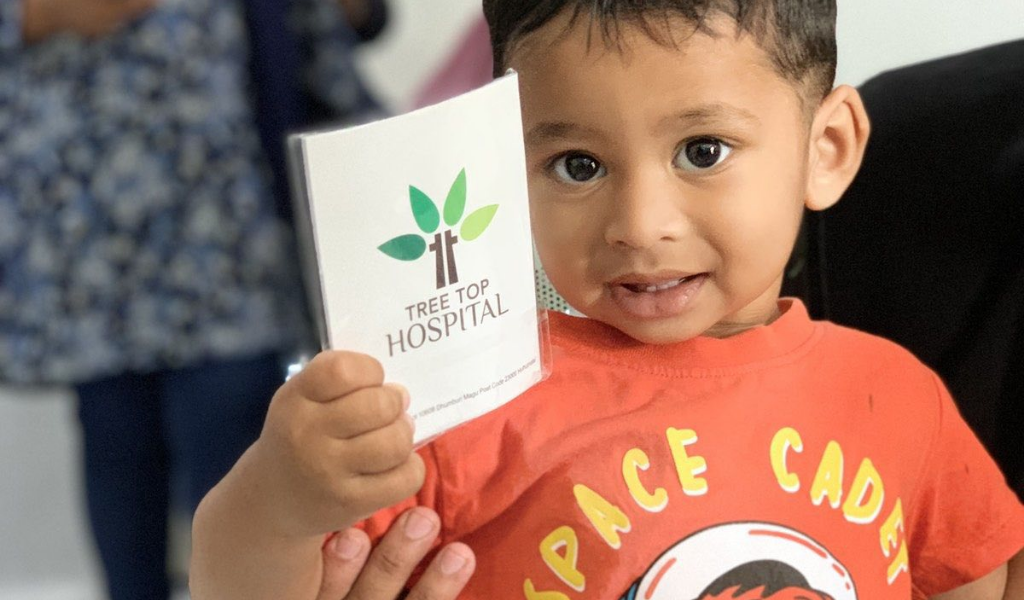
Make Sure your Child is Still Energetic This Ramadan
We know the importance of Ramadan from a young age, children partake in observing fasting and as parents, we have the responsibility to guide and assist during the progression of their fast. It is crucial to prepare the kids for the hunger and thirst they will experience, and how they can maintain their energy levels to do their daily schoolwork.
Dr Ruhkshana Ahmed, Child Nutrition Consultant shares her advice on maintaining your child’s nutrition during the month of Ramadan.
Fasting tolerance in children is determined by their overall health and nutrition, as well as how well they are prepared to go without eating and drinking during the day. Before a child fast, parents should assess their ability to tolerate hunger, activities, and eating habits. Fasting would be easier for adolescents, but it might be difficult for younger children to fast for an entire day. Getting children below the age of eight years interested in fasting is sensible to make them aware of the cultural and religious values but forcing them to fast be not advisable.
Maintaining proper nutrition is critical for children while fasting therefore a diet with a variety of nutritionally balanced food is essential to ensure they will not develop nutritional deficiencies.
Ramadan and fasting can be a time to talk to children about the value of healthy meals. Aim to offer three meals during the night: iftar (breakfast), dinner, and suhur (haaru).
What to consider in the meal plan for fasting children?
Hydration is essential
If a child is poorly hydrated when the child starts fasting, it could lead to dehydration. The symptoms to watch out for are:
· Headache
· Tiredness
· Difficulty focusing on work
In a warm humid climate like ours, young children should drink a minimum of one liter of water, and older children should drink about 1.5 liters of water. The amount of water should be divided into 1-2 cups every two hours. Other fluids drinks include fresh fruit juices or milk. These should be limited to one standard glass as it contains sugar and extra calories.
What to include in the breakfast meal (roadhavillun)?
Instead of a junk-food snack, the fast-breaking meal should be a healthy, energy-rich meal. Encourage children to have about 2-3 dates to break the fast. Dates are high in iron and minerals and high in energy.
Breakfast should include fresh fruit juice or fresh fruits, it provides natural sugars, minerals, and vitamins required for energy and fluids.
Soups made with meats like chicken or plant proteins like lentils and beans and served with pasta are nutritious and beneficial to the child's growth. Prepare fiber-rich complex carbohydrates, such as brown bread sandwiches with cheese, egg, and vegetables, as treats.
Because the child will be hungry by the time the fast is broken, the child will want to eat a large meal. Encourage the child to eat a proper-sized meal and to chew properly. Avoid serving large meals with highly processed and deep-fried foods to break the fast. Overeating at breakfast can result in vomiting, indigestion, bloating, and abdominal pain.
Foods for the dinner meal
This meal can be served about two hours after the fast has been broken. Dinner should include a variety of starchy foods, protein, and vegetables. Carbohydrates can be formed from whole grain rice, pasta, roshi, or noodles. Proteins can include curried fish, chicken, meats, lentils, beans, and peas. They can also be grilled, baked, or steamed. They can be topped with yogurt, ice cream, or a favorite dessert of your child.
There is only a short window in the night to eat and digest food in order to get the calories needed to get through the next day. Heavy meals are difficult to digest as such take the kids for a walk or engage them in active play. Prevent them from going to sleep immediately after the meal.
Most essential meal: Suhur or Haaru
Suhur is a meal eaten in the early morning, just before dawn (fajr). This is an important meal for children who are fasting. It is the meal to get you energized for the day ahead.
It is critical to eat the right foods, such as fiber-rich whole-grain foods that are slow to digest and maintain a steady sugar level. Whole-grain foods provided at haaru meals will assist the child in growing and maintaining focus the following day at school.
Porridge made with oats and milk and topped with nuts and dried fruits will provide the child with the calories he or she requires. It contains fluids from milk and water, as well as carbohydrates from oats. An alternative meal is a multigrain bread with eggs, soft cheese, or peanut butter. At this meal, you can also try yoghurt or smoothies.
Excessive salt and oily foods will make the child thirsty the next day.
These are the advice that we should implement to ensure that your child would be able to establish healthy habits during fasting.